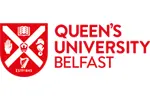

the United Kingdom
Queen's University Belfast| The award | How you will study | Study duration | Course start | Domestic course fees | International course fees |
|---|---|---|---|---|---|
| PhD | Full-time, Part-time | 3 - 6 years | find out | 0 | GBP 18000 per year |
The Institute of Cognition and Culture (ICC) is one of the world's first centres for research in the cognitive science of culture. This is a burgeoning interdisciplinary field in which scholars seek to explain patterns of cultural stability and variation utilising theories and methods of the cognitive and evolutionary sciences. We offer a unique programme of Doctoral research that is based on the recognition of a need to cross traditional disciplinary divisions in the scientific study of cultural phenomena. Our training in a wide range of research methods and theoretical approaches equips students for rigorous scientific investigation, enabling them to generate significant discoveries that are of relevance to potentially many diverse fields of academic scholarship on cognition and culture. The PhD at the Institute of Cognition and Culture (ICC) aims to create a new breed of scholars capable of (i) grasping the discoveries of multiple disciplines - in particular, those connected to the cognitive and evolutionary sciences, (ii) formulating and testing hypotheses through rigorous methodological means, (iii) applying these methods cross-culturally, often in collaboration with other researchers, and (iv) building a well-integrated body of knowledge on a specific topic. The students we seek for this endeavour should demonstrate great analytical skills, creativity and motivation, and a deep interest in the field of cognition and culture. Our world-class academics provide research students with excellent supervision, covering topics including religious beliefs and ritual actions, securlarism and atheism, social cognition and agency. A flourishing programme of events, seminars and research groups complements our postgraduate courses and doctoral supervision. About the Programme The PhD programme at the ICC runs for 3 years. In the first year of training, students prepare their research proposals in consultation with their supervisors and receive group training on a wide range of methods as well as individual orientation on issues specific to their project. This phase culminates with the assessment of the proposed research. If successful, the student 'Differentiates' (i.e. advances to the status of PhD candidate). The second year comprises the research and data-collection component of the postgraduate training, where students systematically test the hypotheses defined in their proposals. This normally entails two phases. In the first, PhD candidates conduct a research study (or series of studies) within the laboratory facilities of the ICC. In the second, students apply their methodology to a distinct cultural context that is identified as being able to address and refine core features of the PhD candidate's theoretical model. In the final year of postgraduate training, analysis of research findings is carried out in consultation with supervisors and other staff members, leading to the production of a thesis of up to 80,000 words. Mode of study/duration Registration is on a full-time or part-time basis, under the direction of a supervisory team appointed by the University. You will be expected to submit your thesis at the end of three years of full-time registration for PhD, or two years for MPhil (or part-time equivalent). Community The postgraduate community within the School is lively, energetic and diverse and, contribute enormously to the research culture of the school. It includes many of our own graduates, as well as graduates of British and Irish universities such as Edinburgh, Glasgow, Oxford, and UCD, and international institutions such as Princeton, Georgetown and Minzu University Beijing. Careers We are proud of the students who have graduated with their doctorates. Where possible we stay in touch so that the link and relationships remain long after a student has left the School. Research Seminars You will be a member of a vibrant graduate community which hosts regular lectures, seminars and conferences and will be encouraged to present the results of your research at these events and more widely at international conferences and workshops. Queen's students also have the opportunity to attend rich variety of public lectures and research seminars available within the School and in other parts of the university. Postgraduates thus have the opportunity to become fully part of a programme of active research in an atmosphere of wide ranging intellectual interchange and enquiry.]
Contact Queen's University Belfast to find course entry requirements.
Below are some suggested courses at other providers that you may also be interested in:
Graduate Certificate in Safety, Risk and Reliability Engineering Graduate Certificate
Engineering Institute of Technology
Find out moreBachelor of Business Administration BBA
University of Applied Sciences Europe - Amsterdam
Find out moreIf you do not meet the entry requirements for this course then consider one of these postgraduate preparation courses from another institution:
Graduate Diploma of Engineering (Safety, Risk and Reliability)
Engineering Institute of Technology
Find out moreGraduate Diploma in Applied Science (Medical Physics)
Queensland University of Technology (QUT)
Find out moreThere are 462 other courses listed from Queen's University Belfast. A selection of these are displayed below:
See other universities in Belfast
Find out more about studying in the United Kingdom